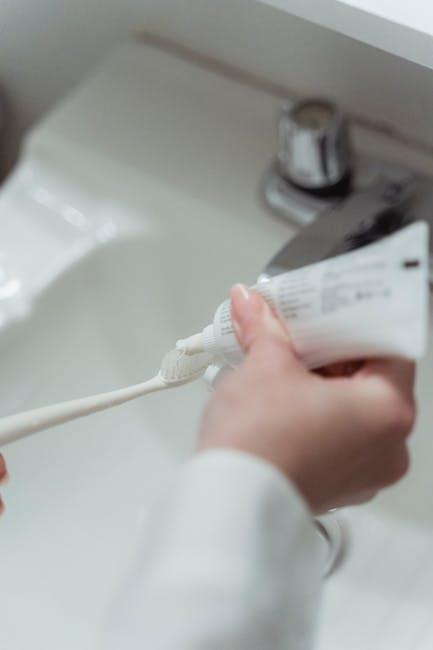
Are Fluoride Bans Going to Escalate the Country’s Dental Health Crisis?
In recent years, a growing number of communities across the United States have debated or enacted bans on water fluoridation. These bans have sparked intense discussions among dentists, public health officials, and policymakers. But is removing fluoride from community water supplies a step backward in the battle against dental diseases? This article explores whether fluoride bans are poised to escalate the country’s dental health crisis and what this means for oral health nationwide.
Understanding Fluoride and Its Role in Dental Health
Fluoride is a naturally occurring mineral recognized for its cavity-preventing properties. Since the mid-20th century, water fluoridation has been promoted by health authorities as one of the most effective ways to combat dental decay.
How Fluoride Protects Teeth
- Remineralizes enamel: Fluoride helps rebuild weakened tooth enamel, protecting against acid attacks from bacteria.
- Inhibits bacterial growth: It reduces the ability of dental bacteria to produce acids harmful to teeth.
- Cost-effective prevention: Community water fluoridation benefits all residents regardless of income or access to dental care.
The Rise of Fluoride Bans: What’s Driving the Movement?
Despite its proven benefits, fluoride bans have gained traction in some areas due to:
- Health Concerns & Misinformation: Some cite potential risks such as fluorosis or alleged toxicity from fluoride exposure, often fueled by misinformation online.
- Environmental Factors: Concerns about fluoride’s impact on ecosystems and water sources have motivated local activism.
- Preference for Personal Choice: Opponents argue for individual control over fluoride intake rather than community mandates.
Potential Consequences of Fluoride Bans on Public Dental Health
Removing fluoride from community water raises concerns among dental professionals regarding increased oral health problems, including:
- Rising rates of dental decay and cavities, especially in vulnerable populations like children and seniors.
- Increased incidence of expensive dental treatments such as fillings, root canals, and extractions.
- Widening oral health disparities linked to socioeconomic status and access to dental care.
- Higher prevalence of dental emergencies and related health complications.
Dentistry IQ Case Study: Impact in Communities Without Fluoride
Studies comparing fluoridated versus non-fluoridated communities consistently show:
| Metric | Fluoridated Communities | Non-Fluoridated Communities |
|---|---|---|
| Children with Cavities (Ages 5-12) | 12% | 28% |
| Average Dental Treatment Costs per Capita | $180 | $320 |
| Prevalence of Emergency Dental Visits | 8% | 15% |
Dental Professionals Weigh In: Expert Opinions from Dentistry IQ
Leading dental experts emphasize that:
- Eliminating fluoride puts millions at higher risk of preventable dental diseases.
- Water fluoridation remains a cornerstone of comprehensive oral health strategies.
- Public education about fluoride safety and benefits is critical to counter misinformation.
- Additional preventive tools such as fluoride varnishes and dental sealants complement but do not replace community water fluoridation.
The Benefits of Maintaining Fluoride in Water Supplies
Continuing water fluoridation provides numerous advantages:
- Prevention of tooth decay: Reduces cavities by up to 35% in children and adults.
- Equitable oral health benefits: Protects vulnerable groups who may lack access to dental care.
- Economic savings: Every $1 invested in fluoridation saves approximately $38 in dental treatment costs.
- Community-wide impact: Benefits all residents regardless of individual health habits.
Practical Tips for Protecting Dental Health Amid Fluoride Bans
For communities where fluoride has been banned or reduced, here are steps individuals can take to safeguard their oral health:
- Use fluoride toothpaste: Brushing twice daily with fluoride-containing toothpaste remains essential.
- Schedule regular dental visits: Professional cleanings and screenings help catch early decay.
- Consider fluoride supplements or varnishes: Consult your dentist about alternative fluoride treatments.
- Maintain a balanced diet low in sugar: Minimize cavity-causing acid attacks by reducing sugary foods and drinks.
- Practice good oral hygiene habits: Floss daily and rinse with antibacterial mouthwash if recommended.
Conclusion: Why Fluoride Bans Could Deepen Our Dental Health Challenges
The evidence is clear: fluoride plays a pivotal role in preventing tooth decay and promoting oral health on a national scale. Bans on fluoride in water supplies risk undoing decades of progress, elevating the dental health crisis especially among underserved populations. Maintaining community water fluoridation, combined with sound dental practices and education, offers the best path forward to safeguard America’s smiles. As Dentistry IQ continues to monitor developments, dental professionals and public health advocates alike stress the importance of informed decisions grounded in science—because healthy teeth, after all, start with fluoride.


